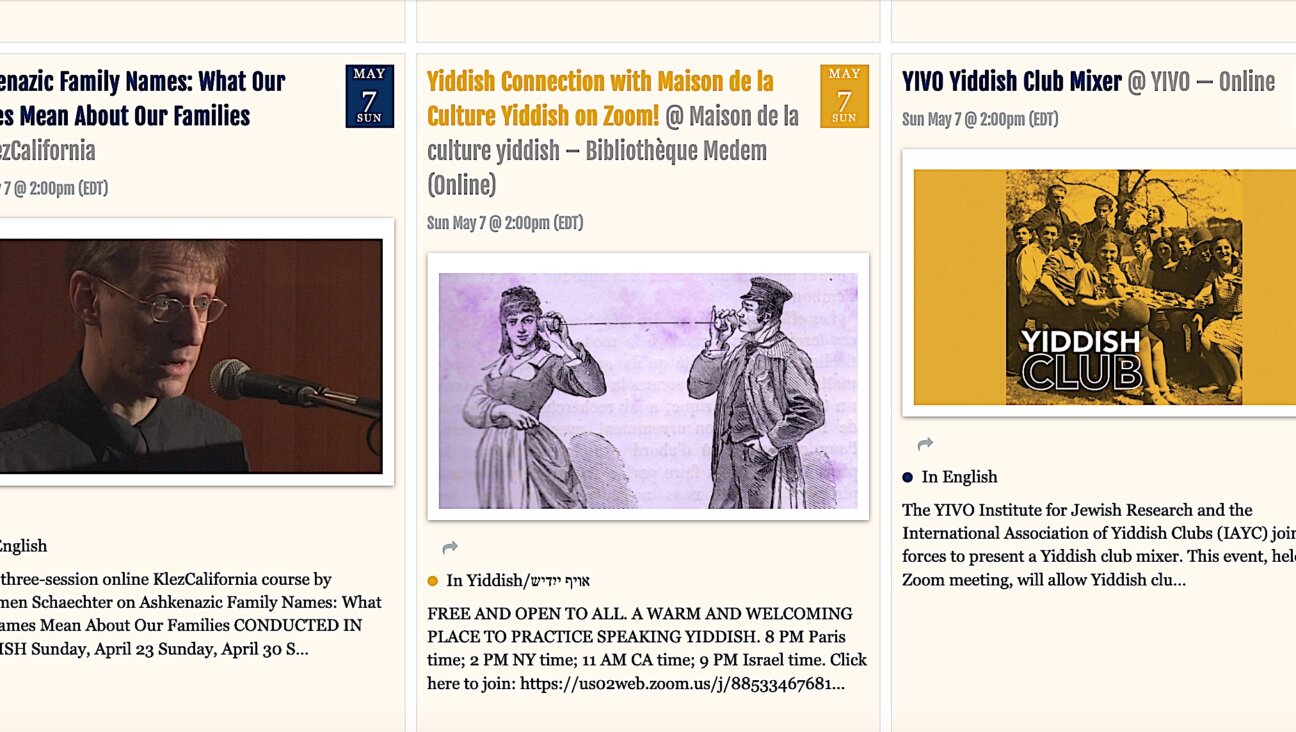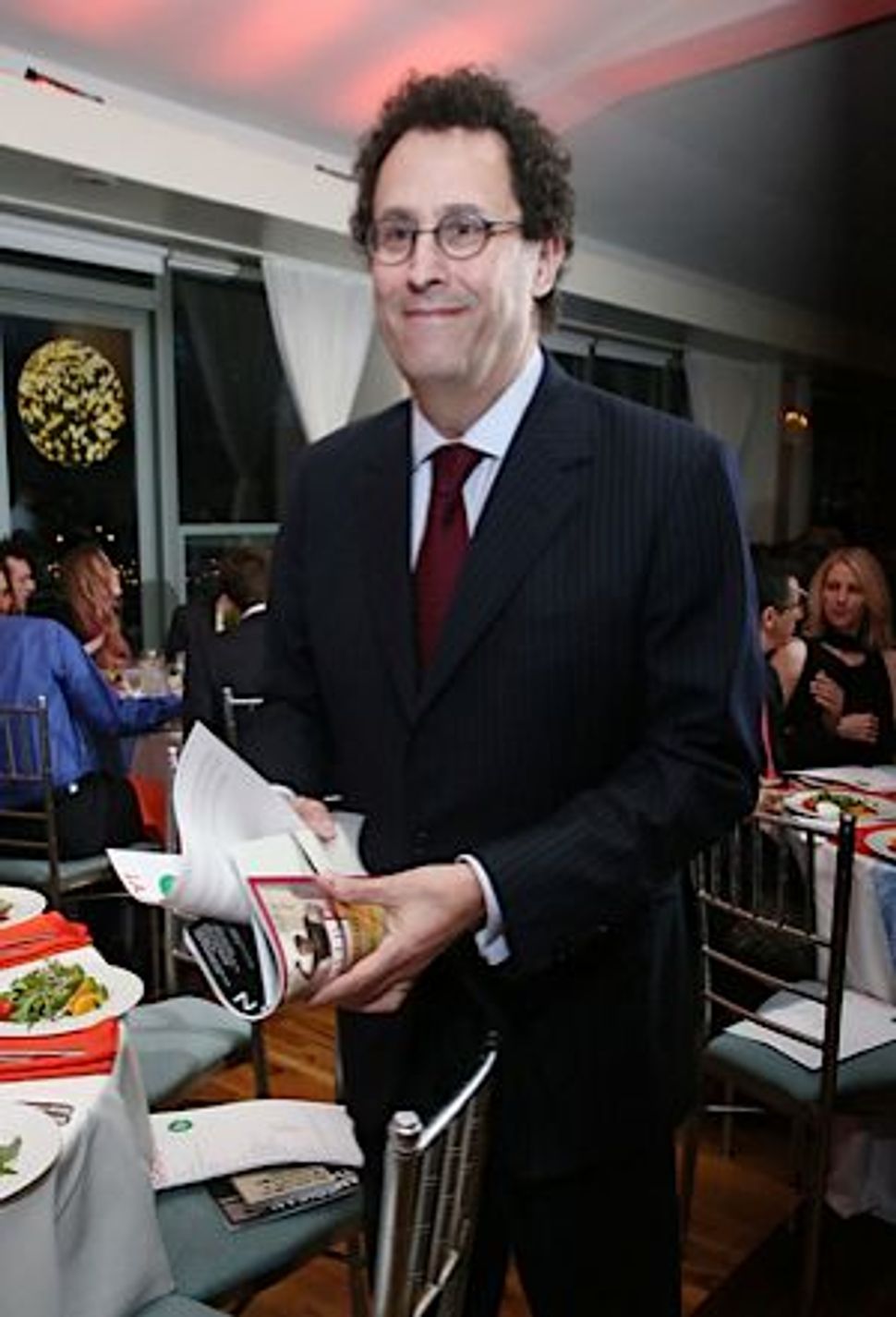See what’s going on in the new Yiddish community calendar
The calendar includes both in-person and online events, both in English and in Yiddish

The calendar includes both in-person and online events, both in English and in Yiddish
Ohio State University students and faculty are demanding administrators address a professor’s use of the phrase “Jewing people down” in a Zoom lecture. “I need to convey my utter dismay at having a professor on staff at The Ohio State University plainly using this very derogatory term to describe ‘Hard’ bargaining negotiations,” Chabad Director Levi…

Photo Credit: Margaret Olin Much was made in 2010 of Sanjay Gupta, CNN’s chief medical correspondent, “becoming part of the story” when he treated the Haitian patients he’d been sent to report on. The journalistic ethics, it appeared, were murky; should reporters — particularly those with medical training — abandon their professional posts to help…

Live in New York long enough, and you become accustomed to seeing our most decorated novelists, journalists, poets and playwrights sit on various stages to discuss their work. Uptown places like 92Y and Symphony Space in Manhattan get the lion’s share, while a smattering of smaller venues like Housing Works in SoHo regularly host bestselling…

Useless. Egocentric. Negligible. These are the words David Assaf, a professor of Jewish history at Tel Aviv University, used to describe a condition called “grapho-mania,” or excessive writing. The subject was at the center of a talk delivered March 28 called “Hasidic Grapho-Mania: The Strange Case of Rabbi Eliezer Shlomo Schick of Brooklyn-Yavne’el.” The program…

It was appropriate that the moderator for Alba Arikha’s talk last week at London’s Jewish Book Week was the war correspondent Janine di Giovanni. Di Giovanni is noted for preserving the human dimension in the complexities of conflict. Likewise, “Major/Minor,” Arikha’s recently published memoir, digs deep beneath the surface to explore her tempestuous relationship with…

Philip will have to make room for another Roth. The irony is that Joseph Roth, a Galician-born Austro-Hungarian Jewish writer, dead for nearly three quarters of a century, has never been more alive in the English speaking world. Translator Michael Hofmann, whose gifted ear has graced 11 of Roth’s titles including the recently published “Joseph…

Albert Einstein and Rabindranath Tagore at Einstein’s Berlin home, 1926. Courtesy of the Leo Baeck Institute. One was a Bengali polymath and Nobel laureate with white flowing beard and piercing eyes. The other was the world famous scientist, with frizzy hair and unkempt appearance. When Rabindranath Tagore and Albert Einstein met in New York, it…




100% of profits support our journalism